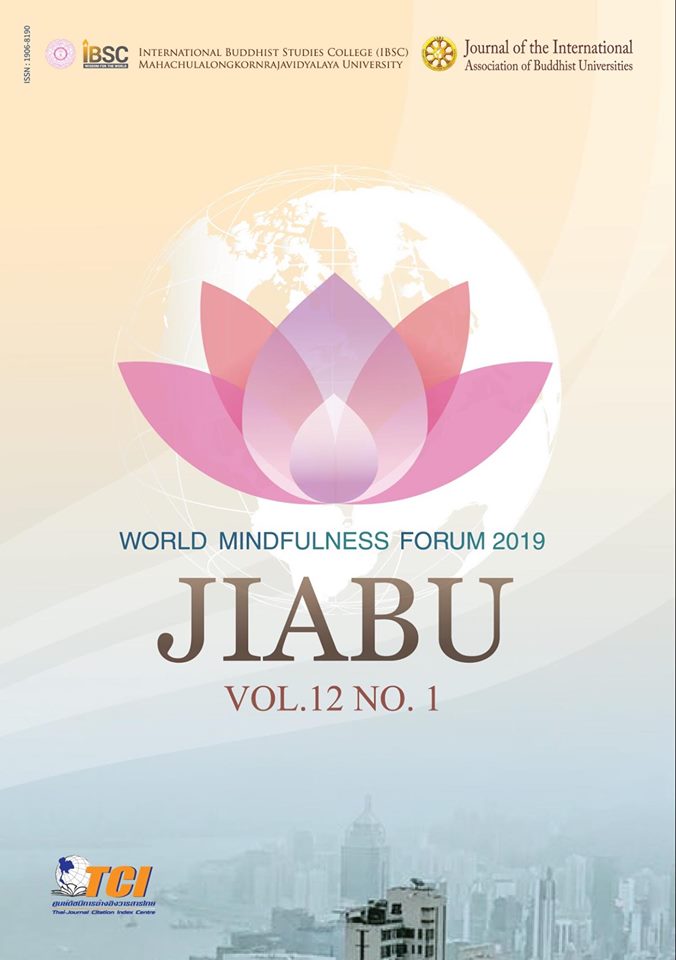Buddhist Monk’s Well-being: Development of a Buddhist Based Well-being Promotion Model by Community Public Health Integration for Better Life Qualities in Chiang Rai province
Main Article Content
Abstract
This research had the purpose to study the problem, model and development the model of Buddhist based well-being promotion model by community public health integration for better life qualities in Chiang Rai province. This research is qualitative research. The research tools were an in-deep interview and focus group, the data was analyzed by contents analysis. The research found: 1. The Buddhist monk’s well-being problem was there not in the level standard of government public organization. The behavior in eating high in fat food. They were not exercising. They did not take care of their health by frequency and not manage to be well of the environment near themselves. 2. The model in making and promoting by using 4 principles; promote, protect, threat, recovery. Also, 6 ways; food, emotion, air, sanitation, no disease and away from allurements which lead to ruin. 3. The development model in Buddhist based well-being promotion through Buddhist integrated was 4 principles with Pavana 4 and knowledge was the integration in Pavana 4, 4 Principle in making and promoting, 6 ways that be the efficacy in Buddhist monk’s well-being.
Article Details
Views and opinions expressed in the articles published by The Journal of the International Association of Buddhist Universities (JIABU), are of responsibility by such authors but not the editors and do not necessarily reflect those of the editors.
References
Pal-ngam, P. (2012). Model development for health promotion of aging in Thailand and Japan. Loei: Loei Ratchabhat University. Payutto, P.A. (2008). Cognitive Health in Buddhism. Bangkok: Saha printing and publishing company.
Supannakul, P. and Srithong, W. (2015). The Cause and relation of Behavior effective of sugar in the blood of Buddhist monks, diabetes in northern Thailand. Behaviorism Institute Srinakarintaravirot.
Suthit Arpakaro, Phramaha (2004). Network: Nature Knowledge and Management. Bangkok: Learning Promotion for happiness communities’ program.
Suwithanpattanabhundit, Phrakru (2014). The development model of Buddhist monks in K honkaen by network participation. Research and developmental institute Mahachulalongkornravavidyalaya University Khonkaen Campus. ขุ.ธ. (บาลี) 25/25/42.
พระไพศาล วิสาโล, แลขอบฟาเขียวทางเลือกสําคัญสําหรับอนาคตที่กําลังปรากฏเปนจริง, กรุงเทพฯ :
สํานักพิมพโกมลคีมทอง, 2549.
วินย.ม. (ไทย) 5/282/87-90.
สํานักงานคณะกรรมการพัฒนาเศรษฐกิจและสังคมแหงชาติ สํานักนายกรัฐมนตรี
สํานักนายกรัฐมนตรี. แผนพัฒนาเศรษฐกิจและสังคมแหงชาติ ฉบับที่สิบสอง พ.ศ. 2560-2564,


